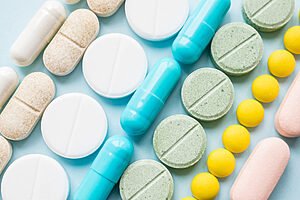Freebasing is a method of drug use that involves converting a drug into a more volatile, smokable form. While freebasing is associated with heightened potency and rapid onset of effects, it carries significant risks. In this blog post, we will explore what freebasing is, the process involved, the substances commonly used, and the potential dangers associated with this practice. By understanding the nature of freebasing, individuals can make informed decisions and prioritize their health and safety.
What is Freebasing?
Freebasing refers to the process of chemically altering a drug, typically a base form of a drug, to make it more volatile and suitable for smoking. The purpose is to enhance the drug’s potency and the speed at which it reaches the brain, resulting in more immediate and intense effects compared to other routes of administration. Freebasing involves the removal of chemical additives and impurities, resulting in a purer, smokeable substance.
Common Substances Used for Freebasing
Cocaine and crack cocaine are the most common substances associated with freebasing. Freebase cocaine is created by chemically converting cocaine hydrochloride into its base form, which can then be vaporized and inhaled. The process increases the drug’s bioavailability and produces a rapid and intense high.
The Freebasing Process
Freebasing involves chemically altering a drug to transform it into a base form suitable for smoking. Typically, a volatile solvent like ether or ammonia is used to remove the chemical impurities and binders, leaving behind the purified base substance. The base substance, often in solid or crystalline form, can then be heated and vaporized for inhalation. This method allows the drug to be rapidly absorbed into the bloodstream through the lungs, resulting in a quick and intense high.
Dangers and Risks of Freebasing
Freebasing presents significant risks to the user’s health and safety. The process itself involves handling volatile and flammable chemicals, which poses a serious risk of accidents and explosions. Additionally, the use of powerful solvents can have toxic effects if inhaled or absorbed through the skin.
Moreover, freebasing increases the risk of overdose due to the rapid and intense onset of effects. It can also lead to severe respiratory problems, cardiovascular issues, and damage to the lungs and other organs. The addictive nature of substances like cocaine and crack cocaine, combined with the intense high achieved through freebasing, further heightens the risk of developing substance use disorders.
Freebasing is a dangerous method of drug use that involves chemically altering substances for smoking. By understanding the process and risks associated with freebasing, individuals can make informed decisions and prioritize their health and well-being.
In summary, freebasing is the process of chemically altering a drug to make it suitable for smoking, resulting in more immediate and intense effects. However, this practice carries significant risks, including the potential for accidents, explosions, toxicity from solvents, overdose, and serious health complications. It is essential to prioritize health and well-being by avoiding the dangers associated with freebasing.
Seeking help with Swift River
If yourself or a loved one are struggling with freebasing, Swift River can help. Give us a call today to learn about our pain free detox and our 30 day residential program.













